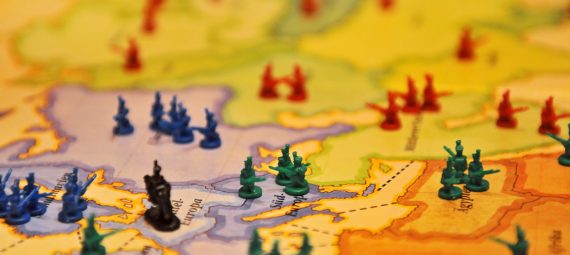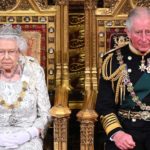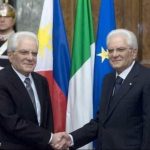The city of Brest becomes protagonist again, 30 years later. We are not talking about the Breton port town but about a Belarusian city near the Polish border. It is no coincidence that it was chosen as the location of the second round of negotiations between Russia and Ukraine: it was precisely there that Mikhail Gorbachev signed the treaty that effectively concluded the history of the Soviet Union, giving way to its dissolution. A few months later, Boris Yeltsin took office as Russia’s first president.
And it is precisely there that the circle should be closed in Russian President Putin‘s mind. The dictator called in the past the dissolution of the USSR “madness” and “a mistake” and that is why he would like to re-tie the threads from Brest and rebuild it, this time bringing everyone together under the” Big-Russia” umbrella. Putin’s conditions are always the same: recognition of the annexation of Crimea to Russia and neutral Ukraine. Inadmissible, obviously for ukrainian president Zelensky. But also for the international community, because not only is the defense of a sovereign state and its democratic institutions at stake, but also the real risk that this is just the beginning of a neo-colonial campaign with unpredictable consequences.

Yanukovych waits at the window
Ukrainian security services revealed Putin’s war plans, which envisaged the conquest of the whole of Ukraine by 6 March. A war that should have lasted a maximum of two weeks, ending with the overthrow of the current government of President Zelensky. According to Ukraynska Pravda, Putin would like to to replace Zelensky with Viktor Yanukovych. The pro-Russian president, overthrown by the Euromaidan protests in 2014, fled to Russia and was condemned in 2019 for his involvement against pro-European protesters and in the occupation of Crimea by Moscow. Yanukovych is in Belarus right now, reportedly, awaiting a call from Putin.
Viktor Medvedchuk could be Putin’s other option, a Ukrainian oligarch very close to him, an entrepreneur in the fields of energy and media. He was under house arrest for his support for Donbass separatists and, taking advantage of the chaos of war, he fled to Russia a few days ago. Zelensky’s request for an acceleration of Ukraine’s entry into the EU is probably also due to this real risk of a coup.

After Ukraine, the whole Russian-speaking world
According to international analysts, in Putin’s big and dangerous ‘Risk’ (the strategy war game, author’s note), the goal would be to take back all the Russian-speaking areas, one by one.
President Lukashenko, Putin’s ally, recently showed on TV a map of Putin’s war operations which include the landing in Odessa and the advance on the Moldovan border to Transnistria, the small pro-Russian enclave officially part of Moldova, but taking a big risk, because Moldova is at the NATO area border.
Self-proclaimed independent in 1991 when Moldova began de-Russification, Transnistria is not recognised by the international community and today it looks like 1980s USSR, transplanted to the present day: Russian is spoken, signs are in Cyrillic and every corner of the country harks back the USSR. President Vadim Krasnoselskij has a Russian passport, not a Moldovan one and, in fact, Russia finances the separatists through the proceeds of the trans-Balkan gas pipeline, located in the Capital Tiraspol and which is de facto controlled by Gazprom.
In this context, it is not surprising that the entire economy is outsourced to a single entity, not a state institution but a private company. Sheriff, owner of almost everything. The pro-European president Maia Sandu is pushing Moldova towards the EU, exploiting the “unionist” wake that is currently the majority in the country, which wants a rapprochement with Romania, but she will have to keep an eye on what happens in Tiraspol. And while it is there, it is good also to take a look at Comrat, the capital of Gagauzia, since 2014 an autonomous entity within Moldova, Turkish-speaking but pro-Russian.

The next country would probably be Georgia, with a similar operation that would start from Abkhazia and South Ossetia, the two Russian-speaking regions that in 2008 declared independence after the pro-Western president Mikhail Sakhashvili sped up his request to join NATO. The ceasefire effectively recognized Moscow’s rights over the two separatist republics, recognized by Moscow and a few other countries. Today the new president Salome Zourabishvili asked for Georgia’s immediate accession to the EU, sensing the real risk of attack.
Putin is re-establishing ties between at least a dozen of the former Soviet fifteen republics and aspires to reestablish Russian influence in the equilibrium of Europe. The Russian-speaking minorities in Estonia, Latvia and Lithuania have been claiming for a long time that they felt discriminated, making the Baltic republics very uneasy.
Russia said that it would retaliate in Karelia, which has a Russian-language minority, should Finland ask to join NATO.
Lukashenko: end of an era?
Then we have Belarus. Putin, in fact, already controls it through Lukashenko, his best ally. But the era of the Belarusian president, after the violent repression of dissent following his disputed re-election, is now nearing its end.
Lukashenko has become toxic, at home and abroad. This means that, should there be an election – and there will be one, because it’s the only way out – this time he will not be able to cheat. This makes it very likely that the pro-European opposition will come to power, as it should have happened already. To forestall this possibility, Putin is already working to replace Lukashenko with a new pro-Russian leader, who would be also more acceptable to Europe.
Author Profile
- Emanuele Lombardini is our blog editor-in-chief. He is an experienced journalist, a Libdem, Italian and passionate European.
Latest entries
Post Disclaimer
The opinions expressed by the author of this post do not necessarily represent the opinions and policies of ELfR.





